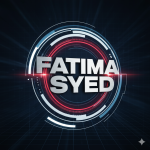Literature has long been a reflection of human experience, offering insights into culture, politics, philosophy, and the complexities of the human condition. Over time, different literary movements have emerged, each one influenced by the socio-political landscape of its era. These movements have shaped the direction of literary styles, themes, and genres, often giving rise to new ways of thinking and writing.
Literary movements provide a deeper understanding of a particular historical period and offer insight into the minds of those who lived through it. By exploring these movements, we can better appreciate how literature has contributed to the development of modern thought and expressi
2. The Rise of Romanticism: Embracing Emotion and Nature
Romanticism emerged in the late 18th century as a reaction to the rationalism and industrialization of the Enlightenment period. This literary movement emphasized emotion, individualism, and a deep connection with nature. Key themes of romantic literature include the glorification of nature, the expression of intense personal emotion, and the rebellion against social conventions.
Writers like William Wordsworth, Samuel Taylor Coleridge, and Mary Shelley showcased the power of the human spirit and the sublime beauty of the natural world. Romanticism provided a platform for writers to explore the unknown, push boundaries, and embrace creativity.

3. Realism and Naturalism: Depicting Life as It Is
In contrast to the idealized portrayals of the Romantic era, Realism and Naturalism focused on the everyday life of ordinary people. Realist writers sought to depict life without embellishment, addressing social issues and presenting characters in their natural environment. Authors like Charles Dickens, Leo Tolstoy, and Gustave Flaubert used their works to criticize societal norms, injustice, and inequality.
Naturalism, a sub-genre of Realism, took a more scientific approach to literature, influenced by Darwin's theories of evolution. Writers like Émile Zola believed that human behavior was shaped by heredity and environment, focusing on the darker aspects of life and human nature.

4. Modernism: A Break from Tradition
The early 20th century witnessed a dramatic shift in literature with the rise of Modernism. This movement rejected traditional forms and embraced experimentation, fragmentation, and a focus on the inner workings of the human mind. Modernist literature often explores themes of alienation, disillusionment, and the search for meaning in a rapidly changing world.
Writers such as James Joyce, Virginia Woolf, and T.S. Eliot broke away from linear narratives, using stream-of-consciousness and non-traditional structures to express the complexities of modern life. The modernist movement sought to capture the fragmented nature of reality, offering readers a new way of understanding the world.

5. Postmodernism: Questioning Truth and Reality
Postmodernism, which emerged in the mid-20th century, further challenged established norms and questioned the very nature of truth and reality. Postmodern writers rejected the notion of absolute truths and instead focused on relativism, parody, and self-awareness in their works.
Authors like Thomas Pynchon, Jean-Paul Sartre, and Kurt Vonnegut explored themes of identity, language, and the deconstruction of social structures. Postmodernism often employs metafiction, where the author calls attention to the artificial nature of storytelling, and offers a more fragmented, chaotic view of the world.




You must be logged in to post a comment.